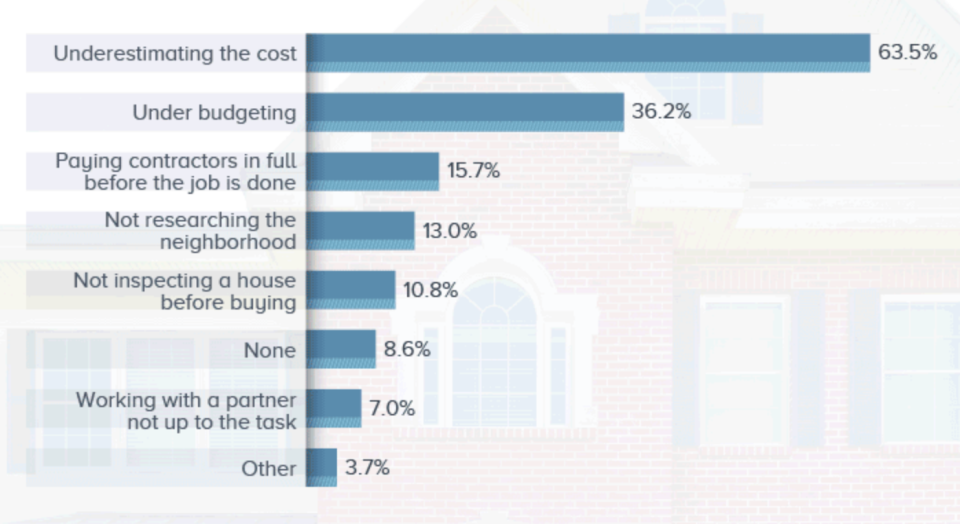Flipping a House? Here's What You Should Worry About
Countless television shows glamorize the concept of flipping a house. They make it appear relatively easy to find a property that's priced well below its market value due to it needing extensive repairs. If you're handy and can paint, it seems like profits are just there for the taking.
There are even seminars on house flipping (sometimes offered by the stars of the above-mentioned shows), all designed to sell you on the idea that house flipping requires hard work but could be a path to getting rich. It can be, of course, but the reality is that house flipping comes with a lot of risks.
You only make money on a flip when purchase price plus renovation costs comes out to less than you sell the house for. It's possible to do that in some cases, but unexpected costs, changing markets, or an inability to find a buyer can turn profits into losses.

Flipping usually involves extensive repairs and renovation. Image source: Getty Images.
How flipping works
Before you can flip a house, you need to purchase one. That requires capital. 41.6% of flippers use savings from their primary source of income as their funding source according to data from a new Porch.com survey, followed by 30% who take out bank loans, 8.6% who use an inheritance or one-time windfall, 6.2% who borrow from family, and another 6.2% who borrow from a private lender.
In most cases, that means that flippers are putting their financial health on the line, risking either their savings or their credit. That's a bigger risk than it used to be when flipping was largely an activity conducted by professionals with considerable building experience. Today the prevalence of side hustle flippers -- people who are not professional housing contractors -- has increased risk. The presence of more flippers in a market can drive up the price of homes that can be flipped, lowering profit margins and removing margin for error.

Image source: Porch.com.
As you can see from the chart above, underestimating the cost was cited more than any other flipping mistake at 63.5%. That's something that's actually shown quite often on the various flipping shows.
In general, people underestimate the cost or don't budget enough for repairs because there's something wrong that can't be seen until work begins. It might be a huge plumbing problem, asbestos, structural defects, or a host of other things. Flippers can also lose money if the market does not support the price they intend to sell at, or if a renovated home takes too long to sell.
"With extra costs hiding in renovations, these monetary mistakes are likely rooted in construction and design," according to the Porch.com report. "By location, most mistakes were made in the kitchen, which also happens to be the most common room to remodel. Ordering or installing the wrong countertops or cabinets was the biggest mishap for that room, followed by getting the wrong fixtures or materials for the bathroom."
Not for everyone
Just because it's possible to make money flipping houses does not mean everyone, or even most people, should try it. In reality, flipping is dangerous: In many cases, houses are bought without inspections, and sometimes without the buyer even being able to see the interior. Even if you can fully inspect the home, a lot can still go wrong. This isn't a space where amateurs should expect to make money as a sideline.
More From The Motley Fool
The Motley Fool has a disclosure policy.

 Yahoo Finance
Yahoo Finance 